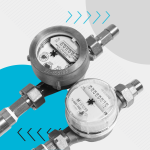
- The President of UOKiK is hosting the flagship event of the Polish Presidency – European Competition Day.
- Today in Warsaw, over 100 representatives of antitrust authorities, EU institutions, academia, and legal professionals are discussing the future directions of competition law in the context of global economic challenges.
- A strong competition policy has always been, and continues to be, a key guarantor of innovation and prosperity in Europe – argues Mario Monti, initiator of European Competition Day.
UOKiK is hosting the European Competition Day, a cyclical event organised by each country holding the Presidency of the Council of the European Union. The meeting brings together representatives of competition authorities, government institutions, national and EU courts, as well as members of the legal and academic communities. Today in Warsaw, over 100 experts from across Europe are discussing the challenges and directions for the development of competition law in the face of contemporary political shifts and global challenges.
– Competition law is not only a tool to combat abuses – it is the foundation of a well-functioning economy. It creates an environment in which innovation can flourish, markets operate efficiently, and consumers benefit from fair competition between entrepreneurs – says Tomasz Chróstny, President of UOKiK.
This year’s European Competition Day is held under the slogan “The evolution of competition law: adapting to contemporary political changes and global challenges”, and forms part of the celebrations marking the 35th anniversary of antitrust law enforcement in Poland.
– We are modernising our approach to competition policy to ensure that European markets remain open, fair, and competitive, while enabling our European companies to compete effectively on the global stage – adds EC Vice-President Teresa Ribera.
European Competition Day 2025
Several threads – one common answer
This year’s European Competition Day covers key themes that are currently shaping the antitrust debate. Participants are addressing the latest challenges facing EU competition policy, the role of economic analysis, and innovative approaches to law enforcement.
Discussing the challenges of the coming years, Mario Monti – former EU Commissioner, Prime Minister of Italy, and initiator of Competition Day – recalled that the openness of the single market and the creation of European “champions” do not have to be mutually exclusive.
– A strong competition policy has been and remains the best guarantor of innovation and prosperity in Europe. In addition, it helps Europe to compete effectively on a global scale. Industrial policy - if inspired by foreward-looking considerations, not by the intent of protecting inefficient structures with a burden on the budget or consumers - has also an important role to play, as long as it does not undermine the single market. Indeed, a more determined enforcement of the rules in order to speed up economic integration despite national resistances would greatly help Europe's competitiveness – emphasises Mario Monti.
The Draghi Report and the Competitiveness Compass, which is the Commission’s response to that report, set the strategic direction for action in the coming years – including in the area of competition. Competitiveness has been recognised as one of the key underlying principles of the Union’s policy, aimed at strengthening its position in the global market and addressing economic challenges. For competition authorities, this means that competition rules continue to safeguard fair competition while also supporting innovation, the resilience of supply chains, and the green transition – thereby enhancing the competitiveness of European companies on global markets.
The new challenges faced by antitrust authorities require the expansion of their intervention tools – particularly sector inquiries (New Competition Tool – NCT) and ex-ante instruments stemming from the Digital Markets Act (DMA). These new tools may offer a more effective response in cases where traditional procedures are too slow or insufficient. The NCT enables antitrust authorities to conduct sectoral proceedings to detect and eliminate potential threats to competition on the market without waiting for evidence of unfair practices, as required in traditional antitrust proceedings. The DMA is a set of EU rules regulating the digital market, particularly large online platforms, ensuring they do not abuse their dominant position. Discussants highlighted the Bundeskartellamt’s first actions in the wholesale fuel market, potential uses of the tool in other countries, and challenges in combining new instruments with traditional competition law. The discussion also underlined the need to maintain judicial control and to provide companies with predictable and transparent operational rules.
The extension of competition law to sectors and markets where it was not previously seen as particularly relevant – such as labour markets – is also generating lively discussion. Seven EU Member States are already conducting proceedings on wage-fixing and no-poach practices. Panellists agree that employee mobility is becoming a new indicator of healthy competition, and that prohibited wage-fixing arrangements can be as damaging as traditional cartel pricing agreements. The Polish antitrust office is among those that prioritise the protection of the labour market. A recent example is the action taken by the President of UOKiK: in July 2024, explanatory proceedings were initiated against the Biedronka and Dino chains, along with their cooperating transport companies, to determine whether they had agreed not to “poach” drivers from one another – potentially restricting employee mobility and inhibiting wage growth. At the same time, UOKiK published a guide entitled “Collusions and Abuse in the Labour Market. Competition Law and Employee Matters”, which clearly explains when wage-fixing or no-poach agreements violate the law and what sanctions apply to such practices.
Today, transatlantic relations add further complexity. A White House memo from February, which threatened tariffs in response to “excessive” EU penalties on Big Tech, raises the question of whether competition policy could become the next battleground in the U.S.–EU trade dispute. Speakers emphasise that strong yet predictable rules can transform potential conflict into dialogue – provided that Europe and the United States align their definitions of market dominance and levels of penalties. Open and respectful discussion of differences remains crucial.
European Competition Day and its impact on the future
A unique highlight of this year’s European Competition Day is a 45-minute, unmoderated conversation between two icons of global competition law: Prof. Frédéric Jenny – long-time Chair of the OECD Competition Committee and Honorary Judge of the Cour de cassation – and Prof. Richard Whish – Professor at King’s College London and author of the textbook “Competition Law”. Both have shaped the thinking of authorities, courts, and academic communities on every continent for decades. Now, they meet in Warsaw to freely tackle questions on the limits of industrial policy, the evolution of the “more economic approach”, and the global convergence of enforcement standards.
Three and a half decades of antitrust enforcement in Poland coincide with a pivotal moment as the EU redefines its role in global technological competition and the sustainable transformation. European Competition Day is expected to provide the new Commission with a concrete package of recommendations – from strategies to align competition and industrial policy to guidelines for enforcing new digital regulations.
More information on European Competition Day can be found on the Presidency website.
Information for the media
| Bartosz Klimczuk, UOKiK Press Team Communications Department | |
| +48 734 116 471 | |
| bartosz.klimczuk@uokik.gov.pl | |
 | pl. Powstańców Warszawy 1 00-950 Warszawa |



























